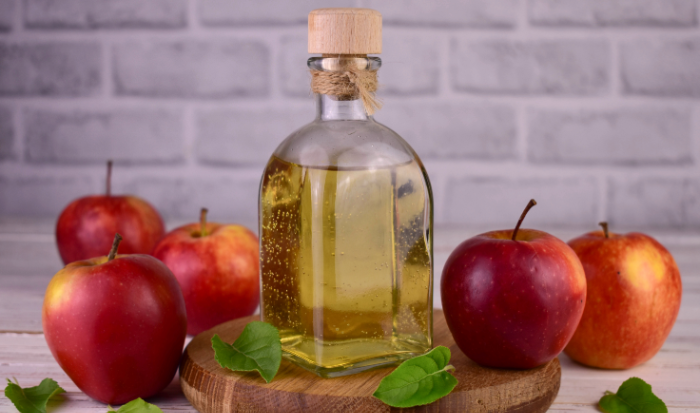
In the realm of culinary treasures, extra virgin olive oil stands out as a venerable elixir, prized not only for its exquisite flavor but also for its myriad health benefits. Derived from the first cold pressing of olives, this golden liquid has been a staple in Mediterranean cuisine for centuries, celebrated for its unique composition and potential positive impacts on well-being.
Let’s explore the essence of extra virgin olive oil, its nutritional profile, antioxidants, and the reasons why it is considered a healthy choice for both culinary and dietary purposes.
Understanding Extra Virgin Olive Oil
Extra virgin olive oil (EVOO) is the highest quality and least processed form of olive oil. It is extracted solely through mechanical means, without the use of heat or chemicals, preserving the natural goodness of the olives.
The olives used in the production of extra virgin olive oil undergo minimal handling, ensuring that the oil retains its distinct aroma, flavor, and nutritional integrity.
Nutritional Profile
One of the key factors that make extra virgin olive oil a healthy choice is its rich nutritional composition. EVOO is predominantly composed of monounsaturated fats, specifically oleic acid, which is known for its potential health benefits. Monounsaturated fats are considered heart-healthy as they may help reduce the risk of cardiovascular diseases by improving cholesterol levels.
Moreover, extra virgin olive oil is a good source of essential fatty acids, including omega-3 and omega-6 fatty acids, which play crucial roles in supporting overall well-being. These fatty acids are integral components of cell membranes, contributing to cellular structure and function.
Antioxidant Powerhouse
Extra virgin olive oil is renowned for its potent antioxidant properties. The oil is rich in phenolic compounds, including hydroxytyrosol and oleocanthal, which exhibit strong antioxidant and anti-inflammatory effects. These compounds help combat oxidative stress in the body, reducing the risk of chronic diseases and promoting overall health.
Furthermore, the antioxidants in extra virgin olive oil may contribute to its long shelf life, protecting the oil from rancidity and maintaining its quality over time. This preservation of freshness ensures that consumers can enjoy the full spectrum of benefits with every drop.
Heart Health and Cholesterol
Numerous studies have demonstrated the positive impact of extra virgin olive oil on heart health. The monounsaturated fats present in EVOO have been linked to improved cardiovascular health by lowering levels of LDL (low-density lipoprotein) cholesterol, commonly referred to as “bad” cholesterol.
Additionally, extra virgin olive oil has been associated with an increase in HDL (high-density lipoprotein) cholesterol, known as “good” cholesterol. This delicate balance contributes to a healthier lipid profile and reduces the risk of atherosclerosis and coronary heart diseases.
Anti-Inflammatory Properties
Chronic inflammation is a key factor in the development of various diseases, including cardiovascular conditions, diabetes, and certain types of cancer. Extra virgin olive oil’s anti-inflammatory properties, attributed to its polyphenol content, may help mitigate inflammation and contribute to overall health.
The oleocanthal compound in extra virgin olive oil has been compared to non-steroidal anti-inflammatory drugs (NSAIDs) in terms of its anti-inflammatory effects. While more research is needed, these findings suggest that incorporating EVOO into the diet may offer a natural approach to managing inflammation.
Cancer Prevention
The potential role of extra virgin olive oil in cancer prevention has garnered attention in scientific research. Some studies suggest that the antioxidants and anti-inflammatory compounds in EVOO may help protect against certain types of cancer, including breast, colorectal, and prostate cancers.
The oleic acid in extra virgin olive oil has also been investigated for its ability to inhibit the growth of cancer cells. While further research is necessary to establish conclusive evidence, these preliminary findings highlight the promising avenues for exploring the cancer-fighting properties of EVOO.
Metabolic Health and Weight Management
Contrary to the misconception that consuming fats leads to weight gain, the monounsaturated fats in extra virgin olive oil may actually aid in weight management. These healthy fats contribute to a feeling of satiety, reducing overall calorie intake and promoting weight loss.
Furthermore, extra virgin olive oil has been linked to improved insulin sensitivity and blood sugar regulation. The polyphenols in EVOO may enhance insulin function, making it a favorable choice for individuals with diabetes or those at risk of developing the condition.
In conclusion, extra virgin olive oil is not merely a flavorful addition to culinary creations; it is a powerhouse of health benefits. From its heart-protective monounsaturated fats to its antioxidant-rich composition, EVOO has earned its status as a symbol of well-being.
Incorporating this golden elixir into your daily diet may contribute to a healthier heart, reduced inflammation, and a lower risk of chronic diseases. As we continue to explore the intricacies of nutrition, extra virgin olive oil remains a steadfast ally in the journey toward optimal health. Embrace the richness of this culinary gem, and let its benefits unfold in every delectable drop.
Please leave comments, questions or suggestions below.
Tom – Olive Oil Lover

